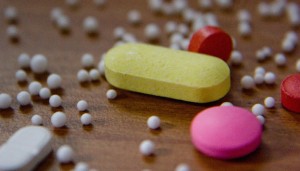So … what goes around comes around. In 2003 and 2004, I spent a lot of time discussing and arguing with people about what would be the best strategy for making and sequencing Sanger libraries for metagenomic sequencing for the Sargasso Sea metagenome study coordinated by the Venter Institute (I worked at TIGR at the time and …
I went to Maker Faire a couple of weeks ago and came across a company called Initial State, who makes beautiful software where you can look at your built environment data in real time dashboards. In this blog post, they have a tutorial on how make a simple “Home Environment Hub” to monitor different variables inside of a room: …
New “Built Environment” papers that came out in the last couple of days, covering microbes in indoor air, flooded areas in Thailand, and on money bills. Chamber Bioaerosol Study: Outdoor Air and Human Occupants as Sources of Indoor Airborne Microbes – Rachel I. Adams – PLOS ONE ..we used DNA sequencing of filter samples to assess the …
A new paper from Van Bonn et al studies the effect of a water change on the bacterial community of an aquarium. Unfortunately, only the abstract is available openly, but it seems pretty cool: The bacterial community composition and structure of water from an established teleost fish system was examined before, during and after a major water change …
We write a fair bit about antibiotic resistance on this blog, but seldom about the alternatives. Obviously, medicine shouldn’t avoid using antibiotics altogether, but we do need better management and use of our current anti-microbial compounds. We also need new methods of treating infection. Nature News has a brief but informative list of antibiotic alternatives written by …
We’ve posted previously about the results of the microbial playoffs in space (microbenet post here, and project website here). And while it’s fun to compare the growth of a microbe representing the Raiders to one representing the 49ers (Raiders won that one)… there’s a more serious question being asked here. We wanted to know what …
Some recent scientific papers and popular science articles that I already included on my daily MicrobiomeDigest blog, but that I would like to share here as well. Feasibility study involving the search for natural strains of microorganisms capable of degrading graffiti from heritage materials – Patricia SanmartÃn – International Biodeterioration & Biodegradation A total of 54 different …
Well this is very promising. The Science and Technology Policy Office of the White House has posted a Request for Information on “Microbiome Research”. Summary: Advanced sequencing technologies have illuminated vast networks of microorganisms that drive essential functions in all environments on Earth. The study of these communities of microorganisms, or microbiomes, is nascent, and …
A recent publication in Environmental Science & Technology and subsequent review on Phys.org gave a lot of promise for the technology of using microbes to clean up waterways. The study suggested that harnessing microbes is an environmentally sustainable solution to breaking down pollutants in water. I think ‘breakthrough’ is a bit strong of an accolade …
Appropriate song to play while reading this post: Farmhouse – Phish Just a quick post today about a paper that was published in Environmental Microbiology this week. Not open access, alas, but it looks like a good study. Exposure to soil, house dust, and decaying plants increases gut microbial diversity and decreases serum IgE levels …
